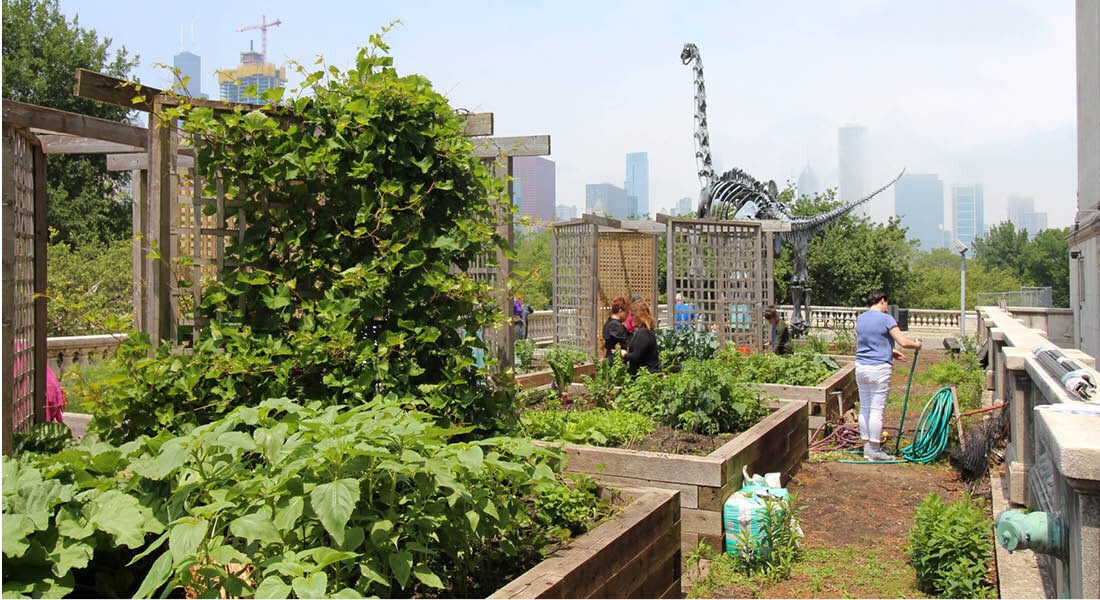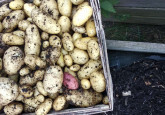Urban permaculture is a movement that is gaining momentum in cities around the world. Faced with the growing challenges of urbanization, climate change and food security, this innovative approach to sustainable agriculture and design offers solutions for transforming our urban environments into oases of greenery and resilience. But what is urban permaculture, and how can it contribute to a more sustainable future? Let's explore this fascinating concept together.
What is permaculture ?
Permaculture, a term derived from "permanent agriculture" and "permanent culture", is a design system inspired by the patterns and relationships observed in nature. Developed in the 1970s by Bill Mollison and David Holmgren, permaculture aims to create sustainable, productive and resilient environments using ecological and ethical principles. Permaculture represents three fundamental ethical principles. Firstly, to care for the Earth by respecting and restoring natural ecosystems. Secondly, to care for people by meeting their basic needs in an equitable way. Then, the third principle is to share equitably by redistributing surpluses and reducing consumption.
Urban permaculture : a response to modern challenges
Urban permaculture adapts these principles to the urban environment. In a context where green spaces are limited and dependence on industrial food systems is high, urban permaculture offers a viable alternative for producing food locally, reducing carbon footprints and strengthening communities. Urban permaculture offers a number of advantages, such as reduced dependency. By growing fruit, vegetables and herbs in urban gardens, residents can reduce their dependence on industrial food systems, which are often remote and energy-intensive. Urban permaculture gardens provide fresh, local and seasonal food, improving nutritional quality and food security. Urban gardens can become refuges for local wildlife, including pollinating insects, birds and small mammals. By growing a variety of plants, urban permaculture promotes biodiversity and is more resistant to disease and pests.
Community gardens strengthen communities
Community gardens play a crucial role in strengthening urban communities, offering much more than just spaces for food production. They create meeting and socializing places where local residents can come together to garden, exchange ideas and collaborate. These regular interactions foster social ties and a sense of belonging. Community gardens often organize workshops on gardening, composting and other ecological practices, encouraging the exchange of knowledge and interaction between participants. Community gardens bring together people of different ages, cultures and social backgrounds, fostering diversity and social cohesion. They integrate newcomers, offering them a great way to fit in and feel connected to their new neighborhood. What's more, these gardens help improve residents' quality of life by promoting physical and mental health. Gardening, as a moderate physical activity, helps to keep fit, reduce stress and improve general well-being. Community gardens also provide access to fresh, local food, improving food security and nutritional quality. By creating green spaces in environments often dominated by concrete, they beautify neighborhoods and provide places for relaxation and rejuvenation. Community gardens also play an educational role, raising residents' awareness of environmental issues and sustainable practices. They become living laboratories where children and adults can learn about ecology, plant life cycles and the importance of biodiversity. Finally, these spaces strengthen community resilience by developing networks of support and solidarity. Community gardens are therefore much more than growing spaces; they are catalysts for social empowerment, well-being and urban sustainability.
Conclusion
Urban permaculture offers an inspiring and pragmatic vision for transforming our cities into greener, more resilient and equitable spaces. By applying permaculture principles to urban environments, we can not only produce food sustainably, but also create stronger communities and healthier environments. As urban challenges continue to grow, urban permaculture is emerging as a viable and necessary solution for a sustainable future.










